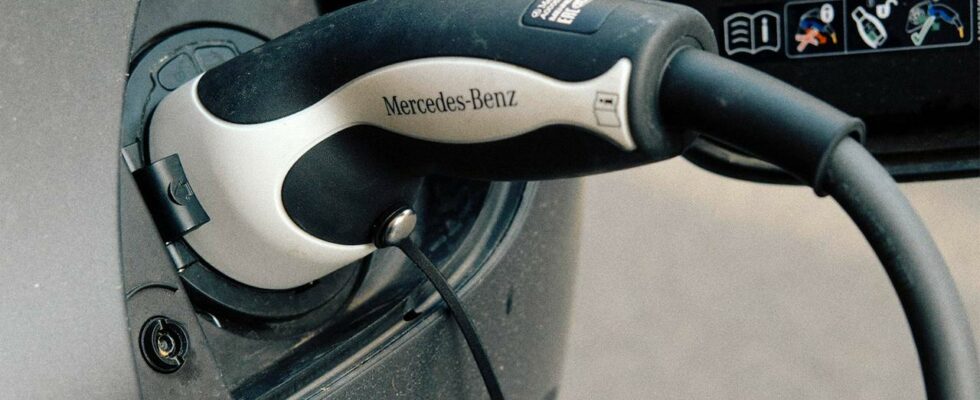Mercedes-Benz is decimating its own plans for electromobility. The manufacturer still wants to build combustion engines well into the 2030s. What does this mean for the electric car revolution?
The goal was ambitious: Mercedes-Benz wanted to build only electric cars by 2030, and by next year it wanted to sell as many pure electric cars and plug-in hybrids as classic combustion engines. But the carmaker is miles away from that. The “Electric Only” strategy was personally scrapped by Mercedes boss Ola Källenius in February, and a new platform for electric vehicles has now been stopped.
“In the coming years, there will be both: electric cars and ultra-modern electrified combustion engines. If the demand is there, well into the 2030s,” Källenius said at the company’s annual general meeting a good two weeks ago – thereby once again admitting what may be the biggest miscalculation in the company’s recent history.
Sales figures stagnate
Because: Sales figures for electric cars are stagnating. The share of fully electric vehicles among the company’s total registered cars was around ten percent in the first quarter of this year – exactly the same as last year. Together with hybrid vehicles, electric cars account for around 20 percent of Mercedes’ sales worldwide – but the company is still a long way from its self-proclaimed 50 percent target by 2025.
And that has consequences: The company has now stopped the development of a new platform for electric cars. In the automotive industry, platforms are something like the construction kits from which cars are built. Until now, they were the same for electric cars and conventional combustion engines: regardless of whether they were petrol, diesel, electric or hybrid – the shell was the same, and depending on the vehicle type, a different drive was installed on this shell – on the same production line.
The “MB.EA-Large” platform was supposed to change that: for the first time, large luxury cars could have been built from the ground up as electric vehicles, with increased efficiency, for example in the area of batteries. An ambitious project for the future – but also an expensive one. Too expensive given the weak sales figures for electric cars.
If the Electromobility transition?
Dem SWR The carmaker said that it will continue to invest in e-mobility in any case. Currently, only the production technology for the body shell of the e-cars is being tested. The further development of batteries, motors and software is still being pushed forward.
This means that Mercedes is fully in line with the industry trend. BMW also says it is sticking with combustion engines for the time being, and VW is taking a similar approach. Despite some of its electric car sales figures being significantly better than those of Mercedes. Is the electromobility transition in danger of failing?
Customers are uncertain
The car manufacturers are only reacting to the wishes of the customers, said automotive expert Ferdinand Dudenhöffer in an interview with tagesschau.deAnd customers, in turn, are currently very unsettled by politics. “There is a lot of negative news coming from the political sphere, which makes customers more cautious,” says Dudenhöffer.
As an example, he cites the sudden halt to subsidies for electric cars by the German government before Christmas or the high-profile announcement by EU Commission President von der Leyen that she wants to re-examine the ban on combustion engines in the EU by 2035. This is having a negative impact on sales figures.
Added to this is the current uncertainty in the automotive industry in view of a looming trade conflict with China. The USA has already imposed punitive tariffs of 100 percent on imported electric cars from China due to possible distortion of competition. Such demands are also becoming louder in the EU. However, experts warn of a “punitive tariff spiral”: If China were to impose special tariffs of its own, this could have serious consequences for German car manufacturers. China is currently perhaps the most important sales market – especially in the field of electromobility.
“We need a new Credibility”
They also had to learn this the hard way at Mercedes-Benz in Stuttgart: In the end, electric vehicles are not sold based on political guidelines or ambitious internal strategies – but only if customers want to buy the electric cars.

